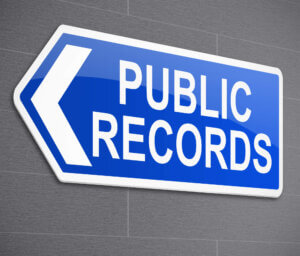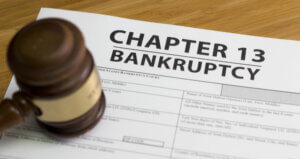
Are you tired of wondering how many people know your business? Who can see a bankruptcy in your past? If you’re preparing to file for bankruptcy, it’s natural to wonder how much privacy to expect.
Nobody wants a significant financial event like this one to haunt them for the rest of their life. If you’re concerned about how to deal with the aftermath of defaulting on loans, there are no-nonsense answers to consider.
So, are bankruptcies public record? Find out the full details to that and more by taking five minutes to read this article.
Who Can Find Information About Your Bankruptcy?
If an individual or company wishes to discover a bankruptcy in your financial history, they have several tools available to accomplish that task. The paragraphs below detail who has the right to ask for information filed with the court system.
Bankruptcy Trustees
If a bankruptcy trustee becomes assigned to the case, they obviously must have access to details. However, they cannot disclose sensitive information about your finances to parties that don’t have business with the proceedings. Trustees are not judges, but they do have an obligation to act in the best interest of your creditors.
Local Papers
Bankruptcies tend to appear in local newspapers, but people forget them quickly. Your city, regional, or state newspaper may not even publish this information. If you want to know for sure, you’ll have to take some time to dig through their websites for bankruptcy records.
PACER
Most people who don’t work in legal professions wouldn’t take the time to subscribe, but they can for a small fee. Creditors may take the time to view information on this database, though. Public Access to Court Electronic Records (PACER) contains records for bankruptcies and other types of legal filings that others can access easily.
Neighbors
While they cannot break the law by opening your mail, a neighbor could discover what’s happening by proxy. If the bank forecloses on your home, an eviction notice may hang on your front door. There’s always the possibility that someone could notice certified letters arriving to your home.
Meeting of Creditors
A meeting of creditors may occur with advance notice to equity security holders. While these mailings go out to those with vested interests, anyone can attend and learn about your bankruptcy filing.
What Is a Bankruptcy Notice?
After you file for bankruptcy, the court issues a notice to creditors that includes your case number. This action creates an automatic “stay” that prevents those companies from attempting to collect debts from you. While this may temporarily stop the annoying phone calls, lenders have the option to apply to lift the stay for fiduciary agreements like car loans and mortgages.
What About Your Credit Report?
Your credit report is going to have a record of bankruptcy. The date that you file and other details become visible to creditors or landlords, unfortunately.
The general public cannot request a copy of this information, but lenders can see this in your history for around seven years, depending on the circumstances. The Fair Credit Reporting Act limits this information from appearing on your credit report for longer than ten years.
Beginning in 2003, anyone who files for bankruptcy can expect the public record of the filing to fade into the background after a decade.
What Can You Do to Protect Yourself?
Getting through the consequences of filing for bankruptcy can feel overwhelming, but some simple steps can go a long way. You can even find free services in the following sections that will become invaluable during this journey.
Ask for Your Annual Credit Report
You can request a free copy of your credit report once a year, and you should take advantage of that opportunity. The only way to understand the full impact of bankruptcy is to view what details the three major credit reporting companies provide.
You can find offers from financial institutions or services for a credit report, or you can use this central website. TransUnion, Equifax, and Experian created this convenient portal for citizens to request a copy of their annual report.
Watch Your Bank Balance
You want to keep a tight leash on your checking or savings after bankruptcy. Extending a history of negative accounts will not help your situation going forward. Do everything you possibly can to keep a positive balance to prove that you can hold onto a solid cash flow.
Pay Your Bills Promptly
If you want to rebuild your credit, paying monthly bills consistently is key. Don’t allow yourself to slip. Pay every invoice you can as fast as you can to avoid exposing yourself to further financial difficulties. Litigation due to unpaid bills is one of the causes of bankruptcy in the United States.
Maintain Employment
Keeping a steady job will improve your credit report and your likelihood of finding alternate sources of funding. A bankruptcy shows financial trouble in your past, but it doesn’t have to be your future. If you don’t already have regular employment, you should take every step possible to find it.
Look for Help
If you want to obtain loans for essentials like housing or a car, someone close to you may cosign on applications. In most cases, you won’t have the ability to find new credit without this assistance. If you can’t find someone to help in this capacity, seek out personal loans or wait until you have enough cash for a purchase.
Are Bankruptcies Public Record?
Are bankruptcies public record? Unfortunately, the straightforward answer is an unequivocal yes. The good news is that this type of filing doesn’t have the same stigma as before the Great Recession.
Do you need more answers about the process from a bankruptcy lawyer in Nebraska? Call (402) 415-2525 to speak with one of our sympathetic and knowledgeable professionals.





